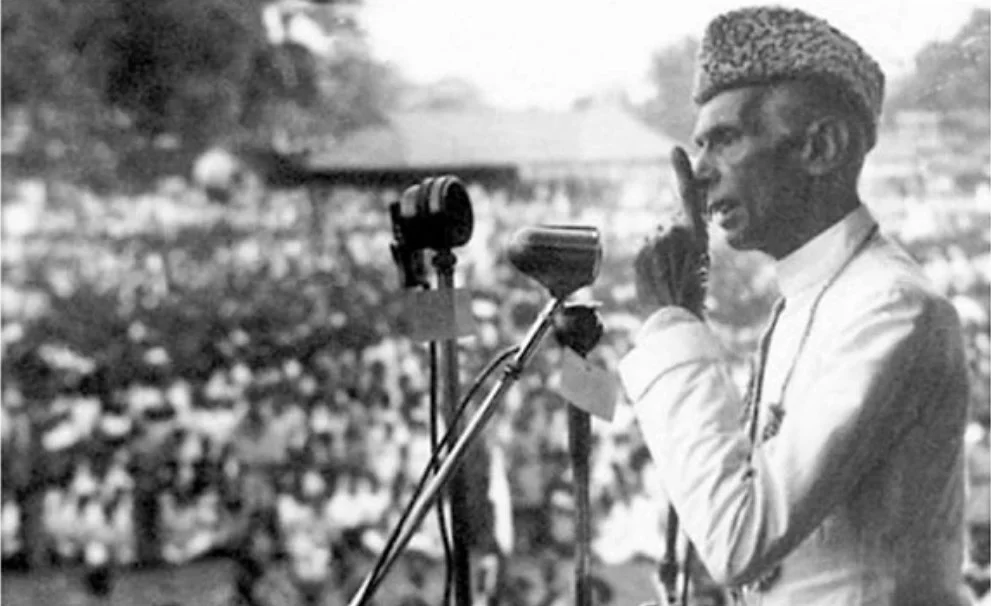The ideological basis of Pakistan is a complex one and is continuously evolving to include a variety of different concepts such as Tauheed, Ihsan, Adl, Qisas, and Aman over the past few decades. But at its core, the ideology of Pakistan comprises a few key points. These mainly revolve around the theories promulgated by Allama Iqbal, Sir Syed Ahmad Khan and Quaid-e-Azam Muhammad Ali Jinnah, both prominent figures in the Pakistan Movement which aimed to create a separate state for Muslims. These same ideas are what ultimately became the very foundation for Pakistan’s existence.
In this article, we shall shed light on each of these points to gain an adequate understanding of Pakistan’s identity and place in the world.

The Importance of Ideology of Pakistan
IGCSE & O Level Pakistan Studies students, more often than not, get confused about the ideological basis of Pakistan; whether the country was made exclusively for the benefit of Muslims or whether it entailed something even more complex than that. The answer to that can be found in first learning about the importance of having an ideology.
What is an Ideology?
An ideology allows a nation to have a shared purpose and identity. In today’s globalized world, where virtually every country comprises a melting pot of cultures, ethnicities, religions and languages, an ideology can help bring people and communities together and ensure everyone is treated equally.
What is Ideology of Pakistan?
In the case of Pakistan, the ideology is based on a concept known as ‘The Two-Nation Theory’. This theory played a significant role in the creation of Pakistan in 1947 and was also one of the key elements of Quaid-e-Azam Muhammad Ali Jinnah’s demand for a separate homeland for Muslims in British India.
The crux of the Two-Nation Theory was that Hindus and Muslims should be considered as two separate entities with their own distinct religious, social and cultural identities. One of the main arguments of the leadership of the Muslim League at the time was that because of these differences, they couldn't coexist. And thus, the idea of a separate nation for Muslims was born.
Five Basic Elements of Ideology of Pakistan
The five basic elements of ideology of Pakistan include the following:
- Islam
- Equality and Social Justice
- Democracy
- Diversity
- Equity
Islamic Ideology of Pakistan
Islam is an integral part of Pakistan’s identity as the country was made on the pretext that Muslims (which form a majority of its current population) would be able to practice their religion freely. The Islamic ideology of Pakistan features the principles of Islamic law (Sharia) which form the basis for the country’s legal framework while Islam itself serves as a guide for its policies and moral identity.
Equality and Social Justice
One of the major components of the ideology of Pakistan is equality and social justice; mainly, ensuring that all its citizens are abiding by the law of the land and, simultaneously, having their rights fulfilled. No one is to be discriminated against based on religion, caste, creed or class and each is to be given the freedom to practice their religion without fear of persecution.
Quaid-e-Azam and Ideology of Pakistan
This was also a feature of Quaid-e-Azam Muhammad Ali Jinnah’s famous address to the Constituent Assembly in 1947.
“You are free; you are free to go to your temples, you are free to go to your mosques or to any other place of worship in this State of Pakistan. You may belong to any religion or caste or creed – that has nothing to do with the business of the State.”
Democracy
The ideology of Pakistan also comprises the principles of democracy; namely the laws stated by the Constitution, the accountability of institutions and the civil society along with their participation in the overall governance of the country. Instituting and maintaining such a system ensures that everybody’s rights and will are respected.
Diversity
Even though Islam plays an overarching role in determining the basis of Pakistan's ideology and identity, much of the ideological basis for Pakistan also centres on ensuring that cultural diversity thrives within the country. It is encouraged to celebrate the uniqueness of various ethnic, cultural and religious groups while also taking necessary steps to preserve the richness and historical significance of the ideology of Pakistan.
Equity
Equity lies at the heart of the ideology of Pakistan as it addresses the needs and welfare of citizens and society. It undertakes various measures and strategies to uplift the underprivileged, impoverished and needy citizens. In doing so, it places a strong emphasis on initiatives geared towards poverty alleviation and the promotion of sustainability.
Conclusion:
While Pakistan’s ideology continues to evolve with changing circumstances in the political, social and cultural spheres, its core values remain the same. By ensuring that the country’s laws and policies continue to adhere to the ideological basis for Pakistan, citizens can rest assured that their rights are protected for a long time to come.
If you want to learn more about the ideological basis of Pakistan or even the importance of the ideology of Pakistan, look no further than Out-Class. We offer interactive courses, past paper practice lectures, Pakistan Studies notes and blogs that talk about important topics related to the subjects that you are interested in. In this case, these may include the Islamic ideology of Pakistan, its basic elements and finally, the ideology of Pakistan according to Quaid-e-Azam Muhammad Ali Jinnah and Allama Iqbal. Get started on your study journey today!


